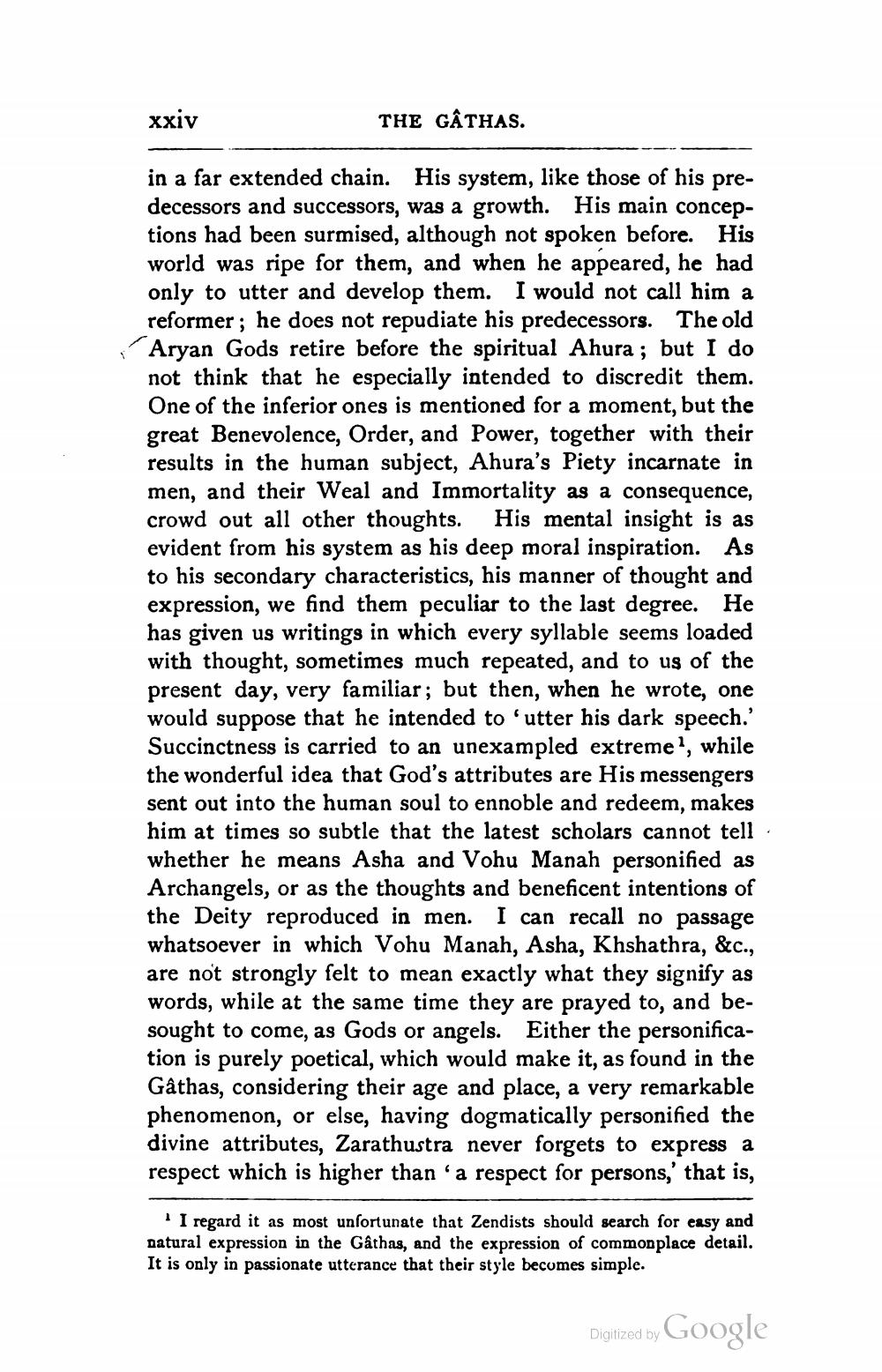________________
xxiv
THE GÂTHAS.
in a far extended chain. His system, like those of his predecessors and successors, was a growth. His main conceptions had been surmised, although not spoken before. His world was ripe for them, and when he appeared, he had only to utter and develop them. I would not call him a reformer; he does not repudiate his predecessors. The old Aryan Gods retire before the spiritual Ahura ; but I do not think that he especially intended to discredit them. One of the inferior ones is mentioned for a moment, but the great Benevolence, Order, and Power, together with their results in the human subject, Ahura's Piety incarnate in men, and their Weal and Immortality as a consequence, crowd out all other thoughts. His mental insight is as evident from his system as his deep moral inspiration. As to his secondary characteristics, his manner of thought and expression, we find them peculiar to the last degree. He has given us writings in which every syllable seems loaded with thought, sometimes much repeated, and to us of the present day, very familiar; but then, when he wrote, one would suppose that he intended to 'utter his dark speech.' Succinctness is carried to an unexampled extreme, while the wonderful idea that God's attributes are His messengers sent out into the human soul to ennoble and redeem, makes him at times so subtle that the latest scholars cannot tell whether he means Asha and Vohu Manah personified as Archangels, or as the thoughts and beneficent intentions of the Deity reproduced in men. I can recall no passage whatsoever in which Vohu Manah, Asha, Khshathra, &c., are not strongly felt to mean exactly what they signify as words, while at the same time they are prayed to, and besought to come, as Gods or angels. Either the personification is purely poetical, which would make it, as found in the Gâthas, considering their age and place, a very remarkable phenomenon, or else, having dogmatically personified the divine attributes, Zarathustra never forgets to express a respect which is higher than a respect for persons,' that is,
'I regard it as most unfortunate that Zendists should search for easy and natural expression in the Gathas, and the expression of commonplace detail. It is only in passionate utterance that their style becomes simple.
Digitized by
Digitized by Google




